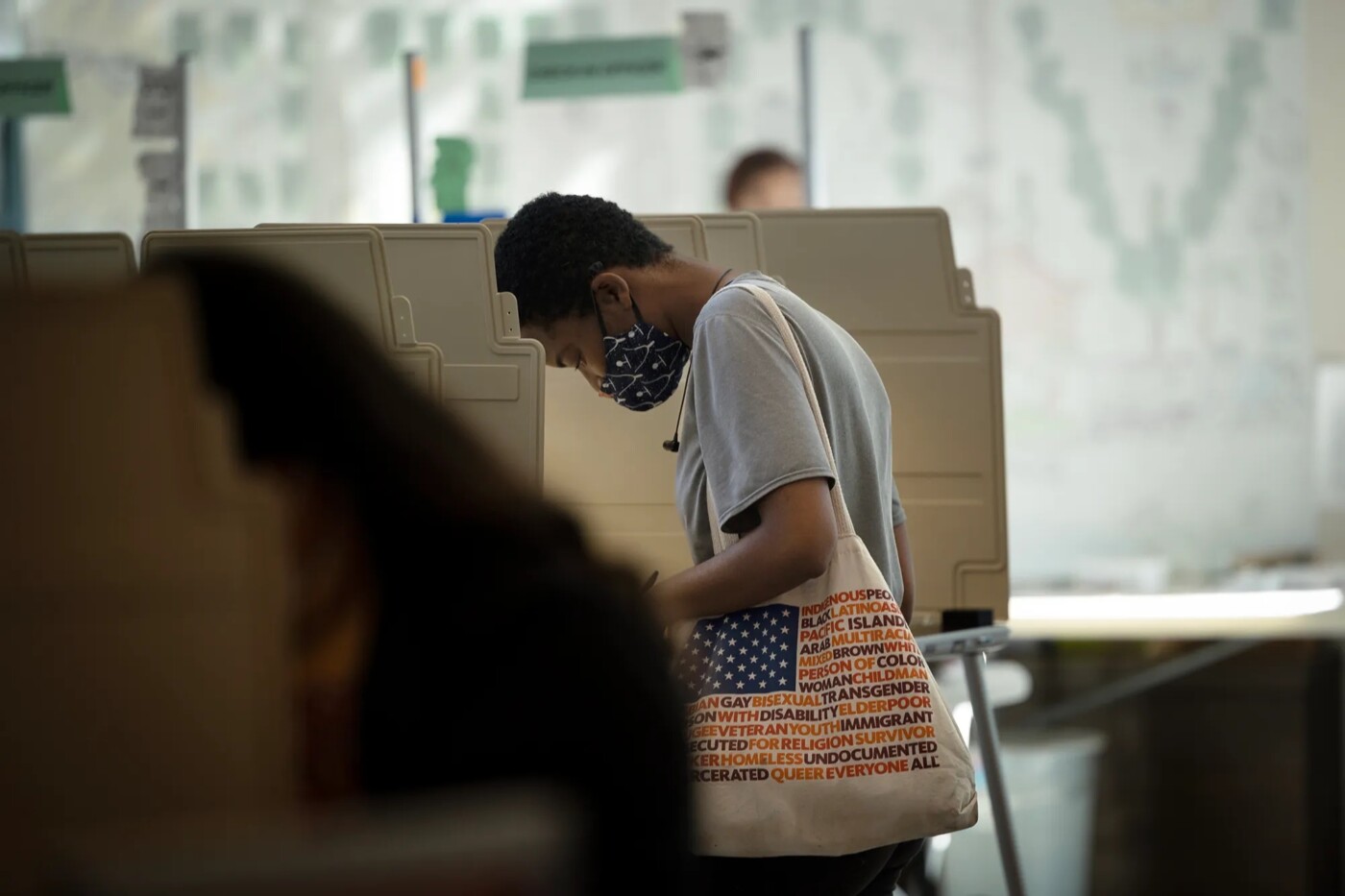From CalMatters’ state Capitol reporter Sameea Kamal:
California has taken a number of steps over the past decade to make voting easier: Mailing ballots to all registered voters, plus allowing early voting and same-day registration.
Yet, the electorate hasn’t shifted to match the state’s growing diversity: Frequent voters are far from representative of the majority of Californians, according to a new poll out Tuesday from the UC Berkeley Institute of Governmental Studies.
Of the state’s “regular voters” — the 39%of registered voters who have voted in at least five of the last seven elections:
- 71% are 50 or older, and 71% are also white
- 68% own their home
- 59% are married
- 55% are college graduates
About three in 10 voters who vote infrequently said it was because they did not know enough about the candidates or issues, or weren’t interested. About one in four responded that special interests controlled the outcomes, or that their vote didn’t matter.
The poll also showed concern about those numbers — and 64% of those who responded supported devoting more state resources to encourage voting participation and outreach to under-represented groups. Black voters, women, Democrats, liberals and college graduates voiced greater support for those efforts.
A substantial majority of respondents (63%) also said mailing ballots to all registered voters has made voting easier — though Republicans and conservative voters, who have historically been more likely to vote in person, report not being affected.
Kat Calvin, founder of Spread the Vote, a national advocacy group that aims to improve voter turnout, told CalMatters that California’s size and population means voters have a lot on the ballot to digest, and that “the sheer amount of information just terrifies people.” She also noted that older, white homeowners are likely to have more time to study the ballot.
- Calvin: “We have so many micro-barriers that are in the way of voting all over the country and all over the state.”
As of February, nearly 22 million of 26.7 million eligible voters were registered in California, about 82%. In the November 2022 election, 51% of registered voters turned out, while turnout was 81% in 2020, the last presidential election.
In other voting news:New research from Ballotpedia found that, over the last five years, lawmakers across the U.S. have made it more difficult for citizens to propose and approve ballot measures.
The study found that, between 2018 and 2023, states approved 42 bills or resolutions that made the initiative, referendum and recall processes more restrictive, such as by increasing signature gathering requirements, filing fees or voter approval thresholds; or banning substantially similar initiatives that were defeated within the prior four years.
One California bill made the “difficult” list: Assembly Bill 2584, signed into law last year, increases the number of proponents needed to start a recall petition.
On Ballotpedia’s list of laws that made the process easier: AB 698, passed in 2019, which states that a signature on an initiative petition can’t be invalidated because the person used initials instead of their full first or middle name, or both.
This session,some legislators are approaching election changes in a different way — simplifying language for voters.
AB 421, authored by Culver City Democratic Assemblymember Isaac Bryan, would require the ballot label for referenda to be followed by the choices “Keep the law” and “Overturn the law.”
Bryan said the bill aims to address abuses of the referendum process by special interests seeking to overturn laws passed by the Legislature. The bill has been heavily watered down since it was first introduced. It passed the Senate elections committee in July and awaits an appropriations committee hearing.
